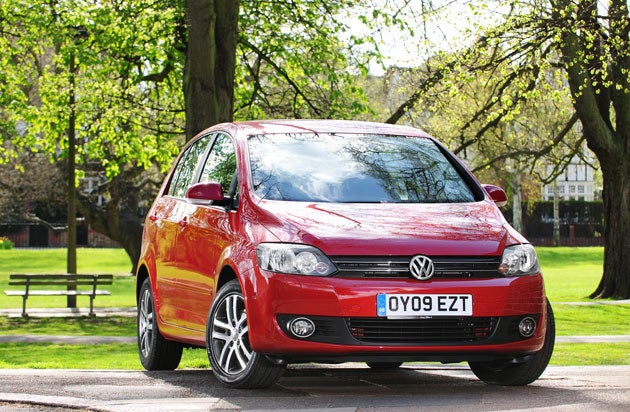Volkswagen introduces BlueMotion eco version of its Golf Plus

Your support helps us to tell the story
From reproductive rights to climate change to Big Tech, The Independent is on the ground when the story is developing. Whether it's investigating the financials of Elon Musk's pro-Trump PAC or producing our latest documentary, 'The A Word', which shines a light on the American women fighting for reproductive rights, we know how important it is to parse out the facts from the messaging.
At such a critical moment in US history, we need reporters on the ground. Your donation allows us to keep sending journalists to speak to both sides of the story.
The Independent is trusted by Americans across the entire political spectrum. And unlike many other quality news outlets, we choose not to lock Americans out of our reporting and analysis with paywalls. We believe quality journalism should be available to everyone, paid for by those who can afford it.
Your support makes all the difference.Volkswagen has introduced a new high-economy, low-CO2 version of its Golf Plus. Prices start at £17,570, and represent an increase of £325 over standard versions of the car that do without the BlueMotion's fuel-saving tweaks.
Among the modifications that help the Golf Plus BlueMotion achieve a combined cycle fuel consumption of 65.7 mpg and CO2 emissions of 114g/km are higher ratios for the upper gears and a stop/start function that shuts down the engine while the car is stationary in traffic. Low rolling resistance tyres and regenerative braking (which is used to charge the battery) help too. The big change, though, is the adoption of VW's new 1.6 litre common-rail diesel engine, which is now pushing out the company's long-serving but rather rough old 1.9 litre diesel across the range. Despite its smaller capacity, the new engine delivers as much power as the old one, while being usefully more economical.
Volkswagen is following a similar policy to Ford and most other manufacturers in offering special “eco” versions of each of its mainstream products and charging a premium for them. BMW, by contrast, has scored a lot of eco brownie points – or perhaps that should be greenie points – by incorporating similar fuel-saving measures into all of its cars under its EfficientDynamics programme, rather than restricting their availability just to special models.
Join our commenting forum
Join thought-provoking conversations, follow other Independent readers and see their replies
Comments